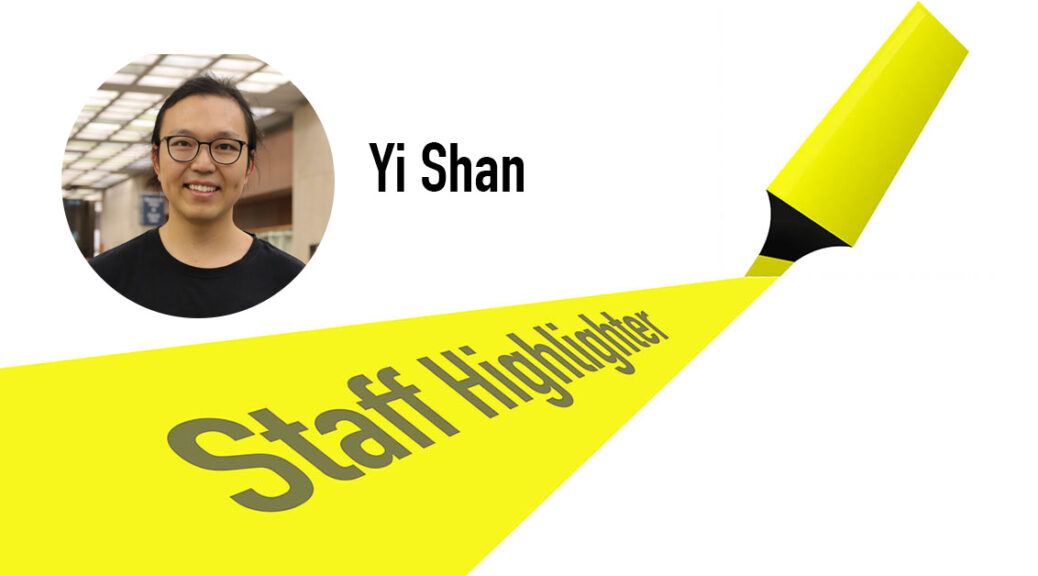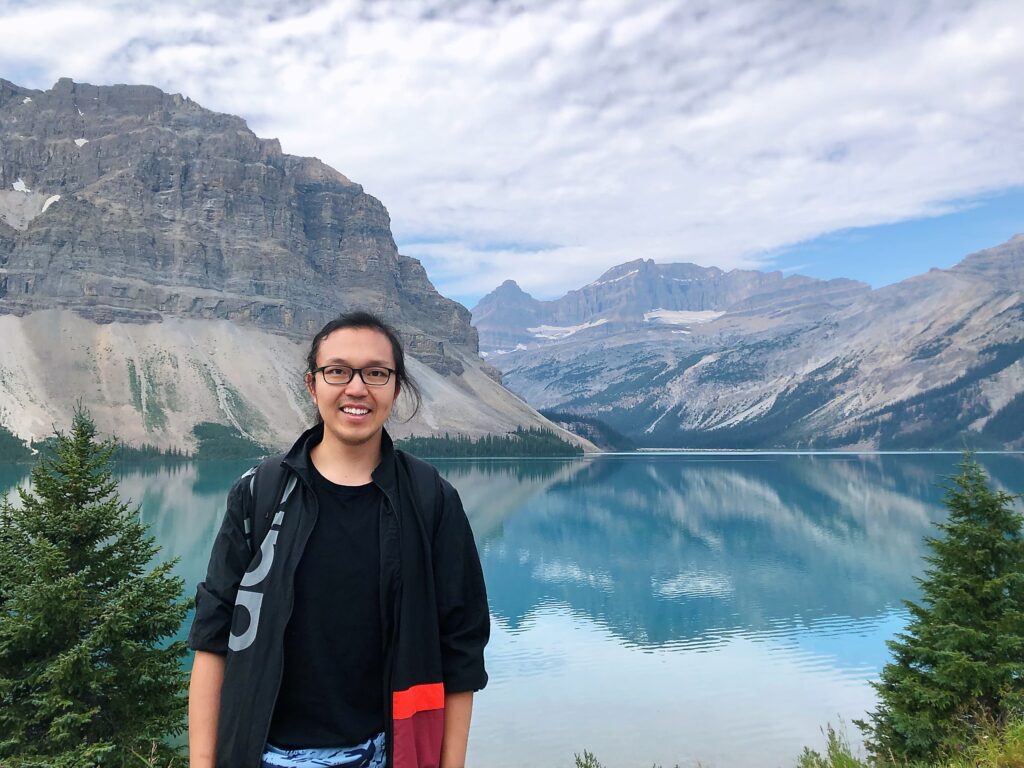What’s your title, and what do you do for UTL?
Yi Shan: My title is East Asian Studies Librarian. I manage all East Asian language materials at the UTL and support the research and teaching of East Asia-related topics and disciplines on UT campus.
Any library (UT or otherwise) memory worth sharing?
YS: I can never forget my research trip to the Seikado Bunko Library in Tokyo. It’s a relatively small private collection but holds some of the rarest and most valuable premodern Chinese books. The reading room rules are very strict. You have to leave your shoes outside (like many Japanese places), wash your hands, and leave your electronics before entering the reading room. Interestingly, however, you can eat (!) your lunch inside the reading room. There is a designated lunch table at least by the time of my visit in 2019.
I found a lot of valuable primary sources for my dissertation there, and the librarian was so kind, knowledgeable, and helpful. The most exciting story is that I was so lucky to stumble upon a presumably Ming dynasty (1368–1644) manuscript that one 18th-century collector that I studied rescued from a stack of old scrap paper.
You’ve lived in many places. How does Austin compare?
YS: Austin is such a lovely city! Having lived in a few giant cities, I find the size of Austin perfectly manageable. In some way, I surprisingly find that the view of Zilker and Barton Springs area resembles a lot to my hometown, Taiyuan, at least in the way it appears in my memory. I used to say that I was okay with the cold but not the heat. Now I guess I am getting there to make my body think otherwise. Anyway, I spent my college years in one of the most notorious four “oven” cities in China, and having survived last summer in Austin, I guess I can cope. But how the heat has been trending for the future does scare me a lot.
What’s something most people don’t know about you?
YS: I love to cook. This interest in culinary art started during my grad school, and I always went to the occasion cooking lessons at the student union. Another version of myself always dreams to own and operate a restaurant. I’m pretty familiar with cooking in Chinese, French, Italian, and Japanese styles, and now I am foraying into Thai. I like to bake as well, but the oven has not been treating me as kindly as the stove has. Or when I bake a cake, it starts to hate me.
As a historian, what makes you gravitate to the past, and how does it influence your perspective on the future?
YS: Trained mostly as a premodernist, I think what makes me excited about the past is you really have to use imagination to understand it. There’s the saying that “past is a foreign country,” but I think it is more than that. It’s like a whole different phenomenological and ontological universe. By imagination, I don’t mean that historians are inventing things and events that never existed or happened. It is that we so often need to question the take-for-granted categories and ways we thought what the past was like.
I think the future, like the past, invites bold imaginations. Building a better future, like understanding the past, needs us both to engage and work with the structures we have today but also to break free from their constraints. It’s all about defamiliarizing the familiar and bravely embracing the unfamiliar with an open and empathetic heart.
I understand you may be a train enthusiast. What is it about trains?
YS: I think my enthusiasm for all mass-transportation vehicles, trains, civil aviation, etc, all comes down to my like to travel to faraway places. I spent a big chunk of my childhood in my grandparents’ apartment right next to a train station (the complex and the station share a wall). My grandfather would tell me, “Look, this train is bound for Beijing, that is for Shanghai, that is for Xi’an,” and I always wanted to take the trains to those places.
And most times I just like the feeling of being on the way, and it has to be a long way that you don’t have to constantly worry about missing your stop. The sound of a train ride or the engines of an aircraft kind of calms me down, and I like to read and write on my way. However, I do hate packing for a trip and spending time at a train station or an airport.
Favorite book, movie or album?
YS: Min Jin Lee’s novel Pachinko is my favorite of all fiction (very few) I’ve read since 2019. Dream of the Red Chamber/Story of the Stone (Honglou meng) is an all-time favorite. Since 2022, I’ve been following the #readingthestone reading-together project (mostly listening to their podcasts) started by Prof. Eileen Chow at Duke University. If you are interested in getting small doses of this greatest piece of Chinese literature (in both original and translation), this is the perfect place to start.
Recently I’ve started Four Treasures of the Sky, a fiction inspired by the Dream of the Red Chamber, and I am loving it.
Favorite food or drink? Make it at home or go out (and where)?
YS: My favorite food recently is Cantonese roasted duck. Ho Ho Chinese Barbecue’s roasted duck is, so far, the best that I’ve found in town. It’s very difficult to make at home, and best to leave for the pros.
What’s the future hold?
YS: There are so many new developments in Higher Education that make the future both exciting and scary. But knowledge/expertise and a strong collection should always be our best assets to embrace the challenges and grow from them. Right now, I am exploring OCR and automated textual processing of CJK (the library jargon for Chinese, Japanese, and Korean) texts and also identifying strategic growth points for our East Asian collections.
In the long run, together with my UTL colleagues and the learning community on campus, I hope to build such a collection that makes UT a strong and unique resource for East Asian studies in the world. I hope this collection will not only serve the existing and emerging research and pedagogical needs but also foster, nurture, and inspire scholarly and pedagogical innovations.


